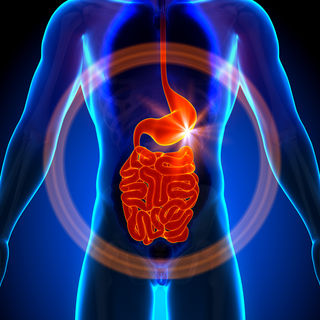Health
Exercise Alters Gut Microbes That Promote Brain Health
Early-life exercise alters microbiome that optimize brain health and metabolism.
Posted January 4, 2016

A wide range of recent animal studies have found a correlation between gastrointestinal pathology and psycho-neurological conditions such as depression, anxiety, autism spectrum disorder (ASD), schizophrenia, and neurodegenerative disorders.
Since 2013, the US National Institute of Mental Health (NIMH) has dedicated millions of dollars to fund seven different pilot studies that examine what scientists call the “Microbiome–Gut–Brain Axis.”
Animal studies continue to confirm that the brain responds to microbial signals from the gut. For example, scientists from McMaster University recently discovered that intestinal bacteria plays an important role in inducing both anxiety and depression. The July 2015 study, “Microbiota and Host Determinants of Behavioural Phenotype in Maternally Separated Mice,” was published in the journal Nature Communications.
Another 2015 study, "Indigenous Bacteria from the Gut Microbiota Regulate Host Serotonin Biosynthesis," led by Elaine Hsiao, a biologist now at UCLA, examined how certain metabolites from gut microbes promote serotonin production in the cells lining the colon. This finding is intriguing because SSRI antidepressants target serotonin reuptake at the junction between neurons. The serotonin producing cells in the digestive tract account for 60% of peripheral serotonin in mice and more than 90% in humans.
However, the specific communication methods between the human brain and our intestines remain enigmatic. We need more human studies on the "Gut-Brain Axis." The exact correlation and causation between gut microbes and brain function is mysterious. That said, the growing body of evidence is fascinating and offers a new perspective on ways that we might improve our physical and psychological well-being.
Early-Life Exercise May Optimize Brain Health and Metabolism for a Lifespan

The most recent findings on the “Gut-Brain Axis” come from researchers at the University of Colorado Boulder, who discovered that early-life physical activity alters the microbial community in the gut in a way that promotes brain health and metabolic activity over the entire lifespan.
The December 2015 study, “Early Life Exercise May Promote Lasting Brain and Metabolic Health Through Gut Bacterial Metabolites,” was published in the journal Immunology and Cell Biology.
The human gut harbors over 100 trillion microorganisms—this is approximately 10 times the number of cells in the human body. Microbes begin residing within human intestines shortly after birth. These microbiome are vital to the development of the immune system and various neural functions. In fact, these microbes can add as many 5 million genes to a person's overall genetic profile. Undeniably, the microorganisms in our intestines have the power to influence aspects of our physiology. Sustaining a diverse and balanced population of gut flora appears to be a key ingredient for maintaining a healthy mind in a healthy body.
In a press release, Monika Fleshner, a professor in CU-Boulder's Department of Integrative Physiology and the senior author of the new study said,
"Exercise affects many aspects of health, both metabolic and mental, and people are only now starting to look at the plasticity of these gut microbes, that is one of the novel aspects of this research. A robust, healthy community of gut microbes also appears to promote healthy brain function and provide anti-depressant effects.”
Although the diverse and varied microbial community in the gut remains somewhat malleable throughout adult life—and can be influenced by lifestyle and environmental factors such as exercise, diet, and sleep patterns—the CU-Boulder researchers found that gut microorganisms are especially 'plastic' at a young age.
The animal study found that young rats who exercised voluntarily on a wheel every day developed robust and sophisticated microbial structures, that included the expansion of probiotic bacterial species in their gut. The rats who had been active since early life had superior brain and metabolic functions when compared to both their sedentary counterparts and rats who only began to exercise regularly in adulthood. The researchers said,
"Although symbiotic host-microbial interactions are important throughout the lifespan, these interactions can have greater and longer lasting impacts during certain critical developmental periods. In this review, we emphasize the ability of exercise during this developmentally receptive time to promote optimal brain and metabolic function across the lifespan through microbial signals."
Conclusion: More Human Studies on the "Gut-Brain Axis" Are Needed
Unfortunately, the researchers have yet to pinpoint the exact age range when the gut microbe community is most susceptible and ripe for the positive changes of early-life exercise. However, the preliminary findings suggest the earlier, the better. . . Both parents and policymakers should take note about the implications of these findings on the importance of combating sedentarism from a young age. I believe the "Gut-Brain Axis" should be added to our list of reasons supporting the importance of early-life physical activity.
In a press release, Agniezka Mika, a graduate researcher in CU-Boulder's Department of Integrative Physiology and the lead author of the new study concluded, "Future research on this microbial ecosystem will hone in on how these microbes influence brain function in a long-lasting way."
Moving forward, the researchers at CU-Boulder plan to explore specific ways to encourage positive gut microbe plasticity in adults, who tend to have stabilized microbial communities in their intestines that can be resistant to change.
If you'd like to read a comprehensive review of the latest research on the "Gut-Brain Axis," check out this October 2015 Nature article, "The Tantalizing Links Between Gut Microbes and the Brain," by Peter Audrey Smith.
© 2016 Christopher Bergland. All rights reserved.
Follow me on Twitter @ckbergland for updates on The Athlete’s Way blog posts.
The Athlete’s Way ® is a registered trademark of Christopher Bergland.




